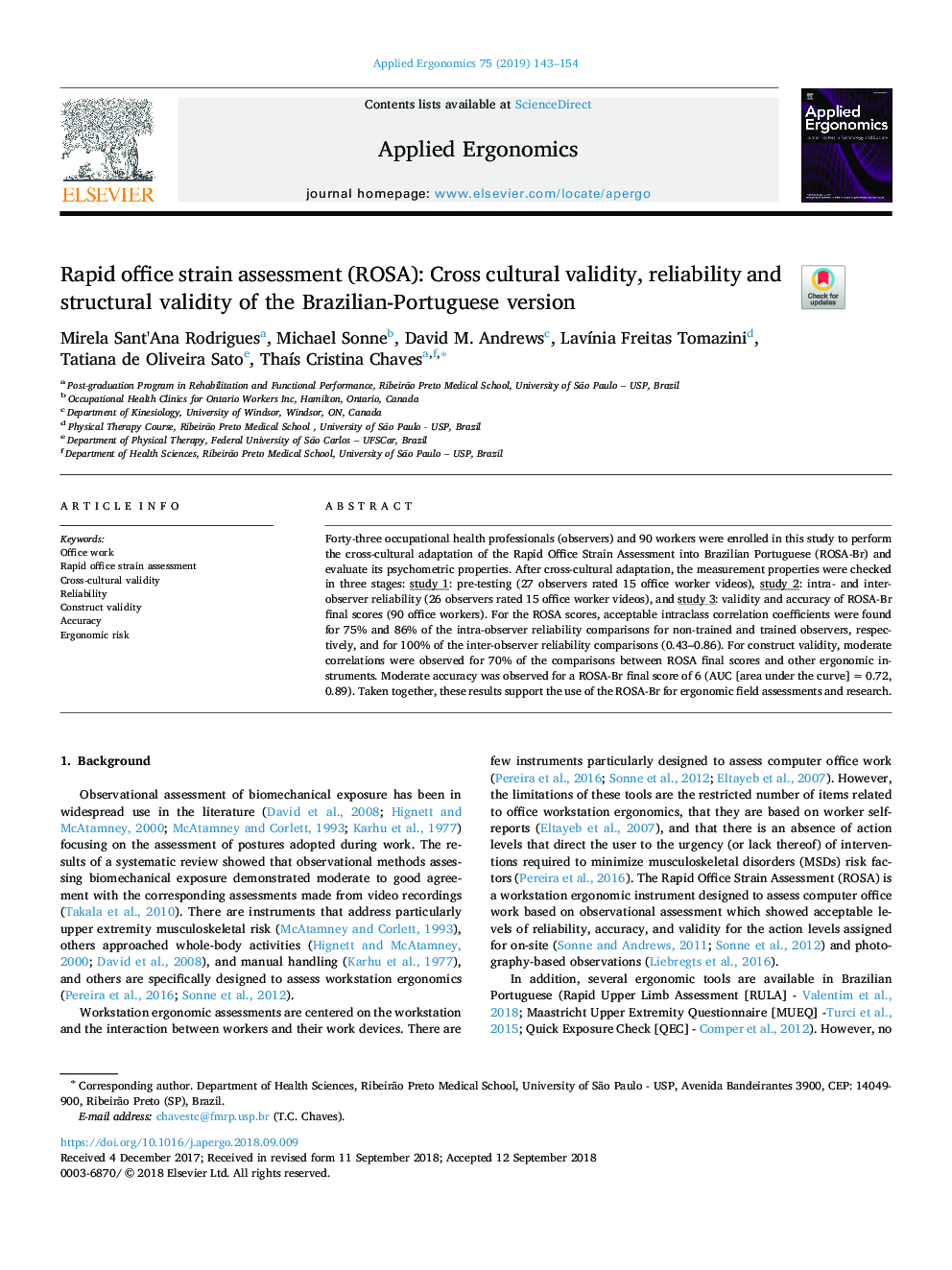| Article ID | Journal | Published Year | Pages | File Type |
|---|---|---|---|---|
| 11028038 | Applied Ergonomics | 2019 | 12 Pages |
Abstract
Forty-three occupational health professionals (observers) and 90 workers were enrolled in this study to perform the cross-cultural adaptation of the Rapid Office Strain Assessment into Brazilian Portuguese (ROSA-Br) and evaluate its psychometric properties. After cross-cultural adaptation, the measurement properties were checked in three stages: study 1: pre-testing (27 observers rated 15 office worker videos), study 2: intra- and inter-observer reliability (26 observers rated 15 office worker videos), and study 3: validity and accuracy of ROSA-Br final scores (90 office workers). For the ROSA scores, acceptable intraclass correlation coefficients were found for 75% and 86% of the intra-observer reliability comparisons for non-trained and trained observers, respectively, and for 100% of the inter-observer reliability comparisons (0.43-0.86). For construct validity, moderate correlations were observed for 70% of the comparisons between ROSA final scores and other ergonomic instruments. Moderate accuracy was observed for a ROSA-Br final score of 6 (AUC [area under the curve]â¯=â¯0.72, 0.89). Taken together, these results support the use of the ROSA-Br for ergonomic field assessments and research.
Related Topics
Physical Sciences and Engineering
Computer Science
Human-Computer Interaction
Authors
Mirela Sant'Ana Rodrigues, Michael Sonne, David M. Andrews, LavÃnia Freitas Tomazini, Tatiana de Oliveira Sato, ThaÃs Cristina Chaves,
